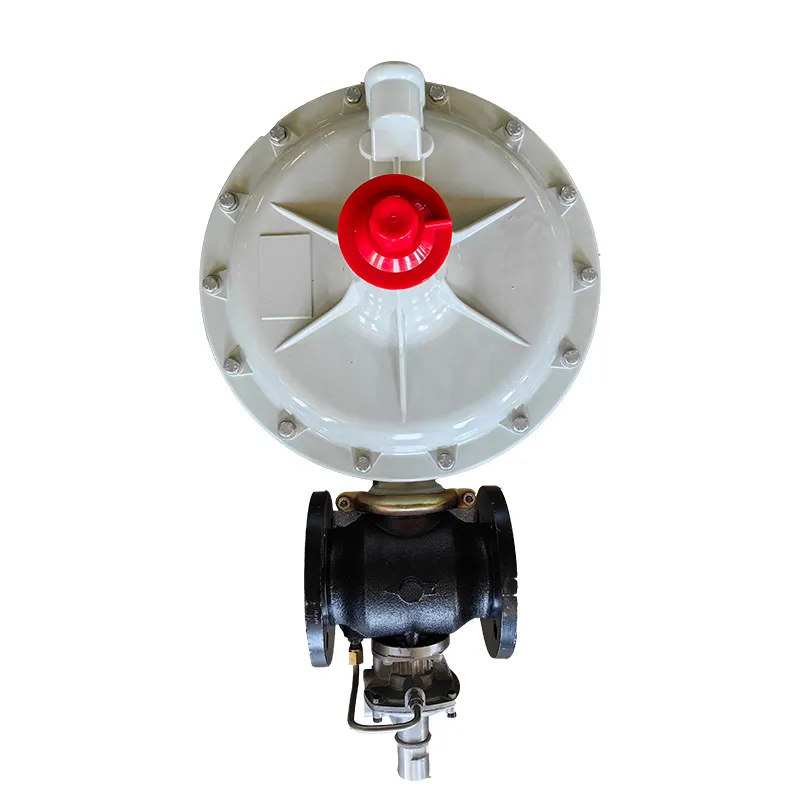
Dec . 11, 2024 19:16
Back to list
gas pressure vessel
Understanding Gas Pressure Vessels Design, Applications, and Safety
Gas pressure vessels are critical components in various industries, playing a vital role in the safe storage and transportation of gases under pressure. These vessels are designed to withstand high internal pressures, ensuring they can contain the gases without risk of rupture or leakage. In this article, we will explore the key aspects of gas pressure vessels, including their design, applications, and safety considerations.
Design Principles
The design of gas pressure vessels is governed by stringent engineering standards to ensure their integrity and safety. The materials used in construction must possess high strength and resistance to corrosion, with common choices being carbon steel, stainless steel, and various alloys. The design must account for factors such as the type of gas being stored, the temperature and pressure conditions, and the environmental factors the vessel will be exposed to.
One of the fundamental principles in the design of gas pressure vessels is the concept of pressure rating, which indicates the maximum allowable pressure a vessel can withstand. This rating is determined based on a combination of material properties, wall thickness, and geometric configuration. Engineers often use computer-aided design (CAD) software and simulation tools to optimize vessel designs, ensuring they meet safety standards while minimizing material costs.
Moreover, the shape of the vessel is crucial; cylindrical and spherical designs are prevalent as they can distribute stress evenly, thereby reducing the likelihood of failure. The ends of the vessels are typically dome-shaped to provide additional strength and stability.
Applications
Gas pressure vessels are employed in a wide range of industries, including oil and gas, chemical manufacturing, food processing, and healthcare. In the oil and gas sector, these vessels are used to store natural gas, propane, and other hydrocarbons. In the chemical industry, pressure vessels facilitate the storage and reaction of gases during various processes, such as synthesis or polymerization.
gas pressure vessel

In the food and beverage industry, gas pressure vessels play a key role in carbonation processes
. For instance, soft drink manufacturers utilize these vessels to dissolve carbon dioxide into liquids under pressure, creating the fizzy drinks that many people enjoy.Furthermore, in healthcare, gas pressure vessels are crucial for storing and distributing medical gases such as oxygen and nitrous oxide, which are essential for patient care, particularly in surgical environments.
Safety Considerations
Safety is paramount when dealing with gas pressure vessels. Failure to adhere to safety standards can lead to catastrophic consequences, including explosions, fire hazards, and environmental damage. Therefore, regular inspections and maintenance are essential to ensure the integrity of the vessels. Pressure testing, often done using hydrostatic methods, can help identify potential weak points and prevent failures.
Regulatory agencies, such as the American Society of Mechanical Engineers (ASME) and the Occupational Safety and Health Administration (OSHA) in the United States, set forth guidelines and regulations governing the design, construction, and operation of pressure vessels. Compliance with these standards is not only crucial for safety but also for legal operations within these industries.
In addition to adhering to regulatory standards, companies often implement safety management systems that include staff training, risk assessments, and emergency response plans. Creating a culture of safety and awareness is vital in preventing accidents and ensuring that all personnel are equipped to handle potential risks associated with gas pressure vessels.
Conclusion
Gas pressure vessels are indispensable across various industries, offering a safe and reliable means for storing and transporting gases under pressure. Their design requires meticulous engineering and adherence to safety standards, ensuring they operate within the parameters of safety and efficiency. By understanding their applications and importance, industries can better appreciate the role gas pressure vessels play in modern industrial processes. As technology advances and industries evolve, the continuous improvement of these vessels and their safety measures will remain a priority, safeguarding both people and the environment.
Latest news
-
Safety Valve Spring-Loaded Design Overpressure ProtectionNewsJul.25,2025
-
Precision Voltage Regulator AC5 Accuracy Grade PerformanceNewsJul.25,2025
-
Natural Gas Pressure Regulating Skid Industrial Pipeline ApplicationsNewsJul.25,2025
-
Natural Gas Filter Stainless Steel Mesh Element DesignNewsJul.25,2025
-
Gas Pressure Regulator Valve Direct-Acting Spring-Loaded DesignNewsJul.25,2025
-
Decompression Equipment Multi-Stage Heat Exchange System DesignNewsJul.25,2025

